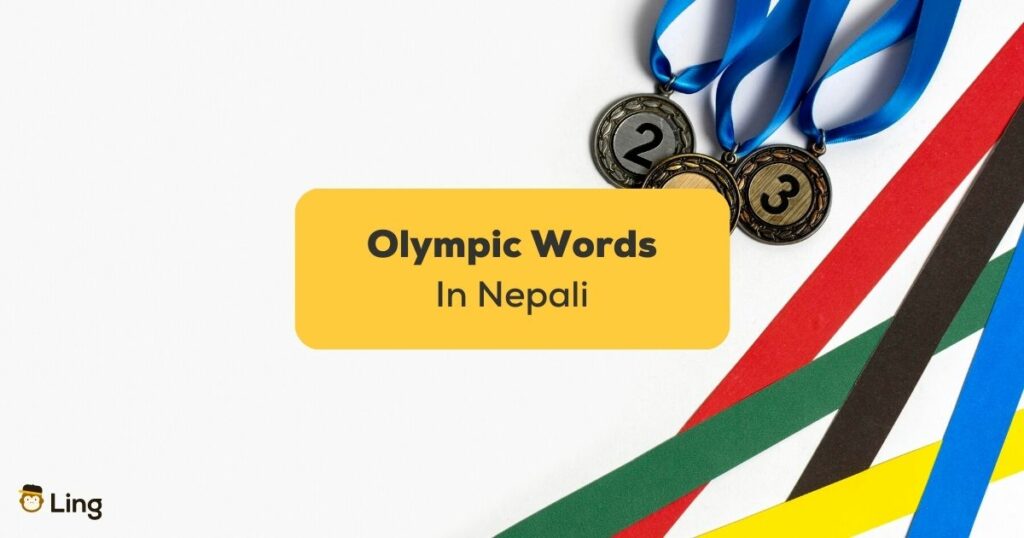Nepal, a land of diverse cultures and rich traditions, has its unique vocabulary for various aspects of life, including the Olympics. If you’re on a journey to learn Nepali, understanding the terms related to the Olympics is a great way to immerse yourself in the language and culture.
In this extended blog post, we’ll dive deeper into the Nepali words for the Olympics, shed light on the history of Nepali participation in the games, and sprinkle some other useful Nepali vocabulary along the way.
Nepali Olympic Games Overview
In Nepali, the term “Olympics” (ओलिम्पिक्स ) remains the same as in English, with a slight Nepali accent. It’s pronounced as “o-li-mi-pik.”
The Nepali attitude towards the Olympic sport is characterized by a deep sense of national pride and enthusiasm in the ancient games! Despite being a relatively small nation on the global stage, Nepal wholeheartedly supports its athletes who participate in the Olympics. The nation views these athletes as ambassadors who represent the rich cultural heritage and indomitable spirit of the Nepali people.
Nepali spectators and fans are known for their unwavering support, cheering passionately for their athletes, regardless of the outcome. There is a collective sense of celebration and unity during the Olympics, as Nepalis from all walks of life come together to rally behind their representatives. Success in the Olympics is a matter of immense national pride, and the achievements of Nepali athletes serve as a source of inspiration for the entire country, motivating the younger generation to pursue their dreams with dedication and perseverance.
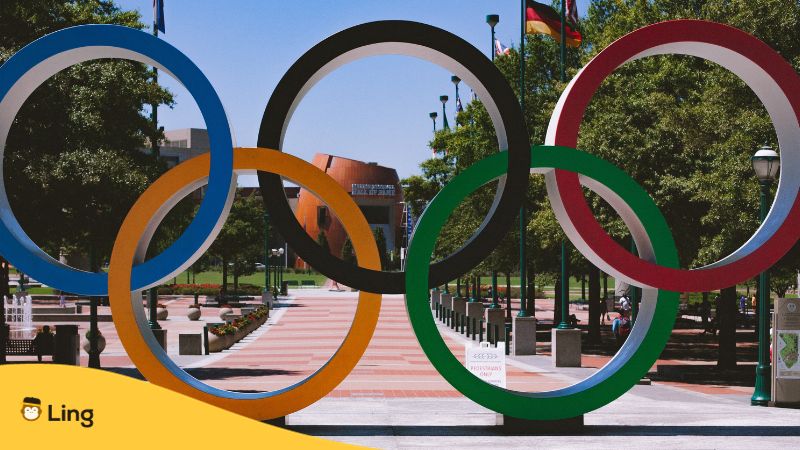
The History Of Nepali Olympics
Nepal, nestled in the Himalayas, has a unique history when it comes to the Olympics. The country first participated in the Summer Olympics in 1964, and its athletes have continued to represent Nepal at various Olympic events since then. Nepal’s participation has been primarily in athletics, boxing, and taekwondo, among other sports.
In recent years, Nepali athletes have made notable achievements, bringing pride to the nation. For example, Gaurika Singh, a Nepali swimmer, made headlines by becoming the youngest athlete at the 2016 Rio Olympics, at the age of just 13. Her dedication and success inspired many aspiring athletes in Nepal.
Nepal’s journey in the Olympics has been a remarkable one, filled with determination and perseverance. Athletes from this land of majestic mountains and ancient Nepali traditions have overcome significant challenges to participate in the world’s most prestigious sporting event.
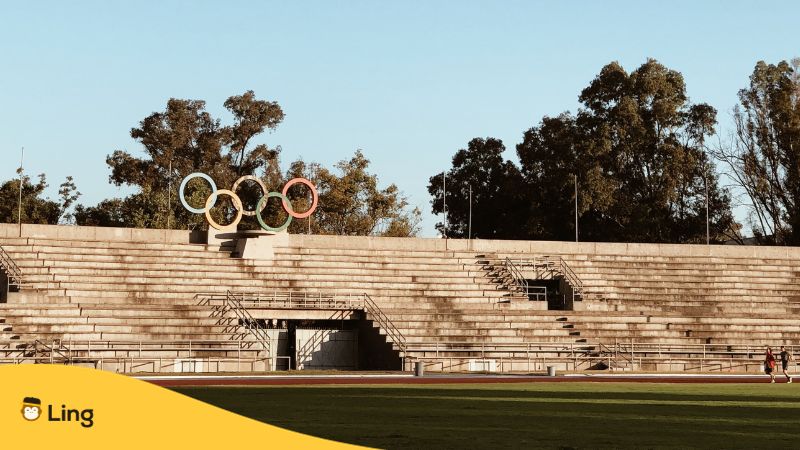
Useful Nepali Vocabulary For Olympic Enthusiasts
Let’s check out the most common words in our ol’ Nepali dictionary to help you learn words for the modern revival of these ancient games held all over the world!
- Olympics: In Nepali, the term “Olympics” (ओलिम्पिक्स) remains the same as in English.
- Competition: “Pratiyogita” (प्रतियोगिता) means competition and is an integral part of any sporting event like the Olympics.
- Winning: The word “Gariundach” (गरिउँदैछ) translates to “winning” or “succeeding” in English. It’s the ultimate goal for every athlete competing in the Olympics.
- Come Back: The phrase “Phari Aaune” (फेरि आउने) means “come back” in Nepali. It’s often used to encourage athletes to return to their home country with pride, regardless of the outcome of their Olympic journey.
- Effort/ Struggle: “Sangharsha” (संघर्ष) translates to “struggle” or “effort” in English. It reflects the hard work and dedication put in by athletes to reach the Olympic stage.
- Discipline: The word “Susasan” (सुसासन) means “discipline,” highlighting the importance of following a strict regimen in training for Olympic competitions.
- Medal: “Rajatilak” (राजतिलक) refers to the “medal” in Nepali, emphasizing the significance of achieving medals in the Olympics.
- Game Changer: The phrase “Khelma Badal” (खेलमा बदल) translates to “game changer” and represents athletes who have the potential to make a significant impact on their sport and the Olympic stage.
- Prestige: “Pratishtha” (प्रतिष्ठा) means “prestige” or “honor.” It underscores the pride and respect that athletes bring to their country when they represent it at the Olympics.
- Major Sport: “Pramukh Khel” (प्रमुख खेल) translates to “major sport” or “main event,” highlighting the significance of certain sports in the Olympic program.
- Prosperity: The word “Samriddhi” (समृद्धि ) means “prosperity” and signifies the positive impact that Olympic success can have on a nation’s well-being and morale.
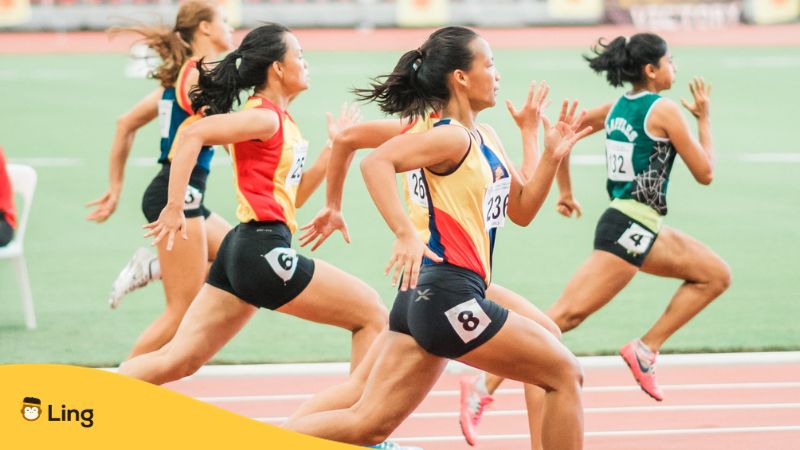
Wrapping Up: Nepali Words For The Olympics
Exploring Nepali words for the Olympics not only enriches your language skills but also provides a glimpse into the unique Nepali culture and history of Nepal. As Nepal continues to make its mark in the world of sports, learning these words can help you connect with the Nepali people and celebrate their achievements on the Olympic stage.
The Olympics, with their universal themes of unity and excellence, serve as a bridge between nations and cultures. The Nepali language, with its rich vocabulary, offers a unique perspective on these global games. So, as you dive into the world of language learning, remember that the Olympics are not just a global sporting event; they are a reflection of unity, dedication, and the pursuit of excellence, as expressed in the beautiful language of Nepal.
Happy learning, and may your journey through the Nepali language be as adventurous as scaling the Himalayan peaks!
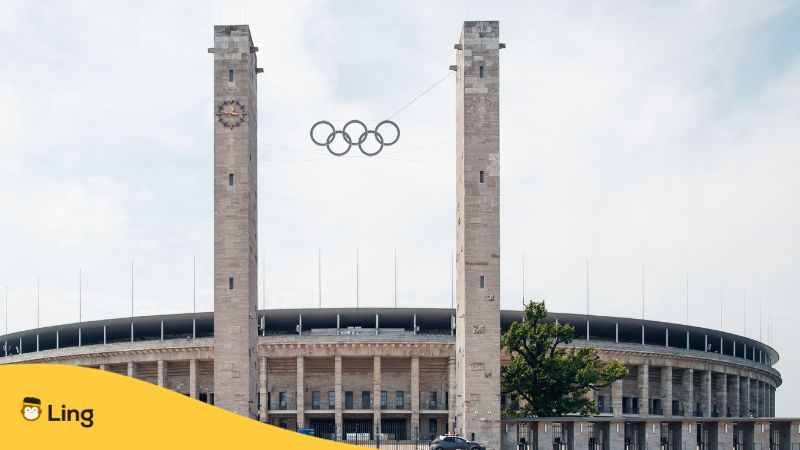
Learn Nepali With Ling
Want to learn more Nepali but don’t know where to find resources on this niche language? Download the Ling app today from the App Store and Play Store.
It is a highly researched language-learning app for a fun and personalized experience. With Ling, you’ll smash your language goals with a little hard work and practice. Aside from Nepali, there are over 60+ foreign languages to learn on Ling. Download it today!
